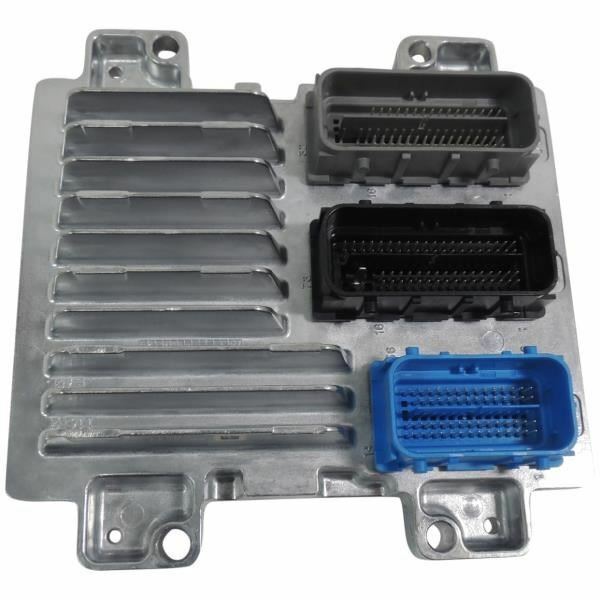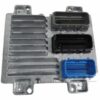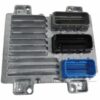Is Your Buick Encore or GM Vehicle Experiencing Critical Engine Problems?
A failing Engine Control Module (ECM), also known as the Powertrain Control Module (PCM), is the root cause of some of the most frustrating and difficult-to-diagnose vehicle issues. If you’re dealing with a persistent check engine light, unexplained stalling, rough idling, poor fuel economy, or a complete no-start condition, the brain of your engine may be compromised. This isn’t just an inconvenience; it’s a critical failure that affects performance, safety, and emissions. Driving with a faulty ECM can lead to further damage to expensive components like the catalytic converter or transmission.
Don’t let a bad computer keep you off the road. This is a direct-fit, professionally programmed Engine Control Module for a wide range of GM vehicles, including the 2013-2016 Buick Encore. We take the guesswork and high dealership costs out of the equation. By providing us with your vehicle’s Vehicle Identification Number (VIN) during checkout, we flash the module with the latest, most stable GM-certified software specific to your car. This ensures that once it arrives, it’s ready for a straightforward installation, restoring the precise communication and control your engine needs to run at its peak.
We had a 2014 Chevy Cruze come in that was driving the owner crazy. It would randomly stall at stoplights and had intermittent starting problems. The owner had already replaced the battery, alternator, and even the fuel pump based on advice from various forums. The codes were all over the place—U-codes for communication loss, P-codes for random misfires. After checking all the primary wiring and grounds, we hooked up our scope to the ECM’s power and data lines. We found significant voltage drops and data corruption originating from within the module itself. A new, properly programmed ECM fixed every single issue. It’s a powerful reminder that when a vehicle has multiple, seemingly unrelated electronic gremlins, the central computer is often the culprit.
Symptoms of a Failing GM ECM
If your vehicle is exhibiting any of the following symptoms, a faulty ECM could be the reason. This Buick Encore ECM Replacement is designed to resolve these common failures:
- ✔ Check Engine Light: The light is on, and you may have codes related to module communication (U-codes) or specific sensor failures that don’t resolve after replacing the sensor.
- ✔ Engine Stalling or Misfiring: The engine may stall unexpectedly while driving or at idle, and you might experience rough running or hesitation during acceleration.
- ✔ No-Start Condition: The engine cranks but refuses to start, often due to the ECM failing to control the fuel injectors or ignition coils.
- ✔ Poor Fuel Economy: A malfunctioning ECM can’t properly regulate the air-fuel mixture, leading to a noticeable drop in MPG.
- ✔ Transmission Shifting Problems: The ECM works with the Transmission Control Module (TCM). A faulty ECM can cause harsh shifting, failure to shift, or incorrect gear selection on automatic transmissions.
- ✔ Intermittent Electrical Issues: Fans not turning on, erratic gauge behavior, or other strange electrical problems can sometimes be traced back to the main computer.
The Superior Solution: VIN-Programmed and Ready to Install
Why choose our module? Because we handle the most critical and complex step for you. Dealerships and many local shops require you to have the vehicle towed in for expensive on-car programming. Our service eliminates that hassle. We use your VIN to load the exact factory software your vehicle was built with, including all subsequent updates from General Motors. This ensures perfect compatibility with your engine, transmission, and all related electronic systems. This isn’t a one-size-fits-all solution; it’s a precise component prepared for your specific vehicle.
This module is a direct replacement for part numbers 12668866, 12668994, 12643636, 12663405, 12670335, 22819494, and 12692200, covering a vast range of popular GM models. Please verify your part number and consult the detailed fitment list to ensure compatibility. Ordering the correct, pre-programmed Buick Encore ECM Replacement is the most effective way to restore your vehicle’s factory performance and reliability.
Frequently Asked Questions
Do I need to program this ECM?
No. The main benefit of our service is that we program the module for you before it ships. Simply provide your vehicle’s 17-digit VIN when you place your order, and it will arrive ready for installation.
What is a VIN and why do you need it?
The VIN (Vehicle Identification Number) is your car’s unique identifier. It contains critical information about the make, model, year, engine type, and factory-installed options. We use this information to load the exact software and calibrations your specific vehicle requires for proper operation.
Will this fix my check engine light?
If the check engine light is caused by an internal failure of the original ECM, then yes, this replacement part will solve the problem. However, if the light is on due to another faulty component (like an oxygen sensor or a bad catalytic converter), you will still need to address that separate issue.
Is any additional setup required after I install it?
In many cases, the module is plug-and-play. However, some GM vehicles may require a simple, tool-free security relearn procedure (often called a Passlock or anti-theft relearn). This procedure can typically be done in your driveway and involves a sequence of key turns. Instructions are widely available online for your specific model.
How do I find my original part number?
Your original ECM’s part number is printed on a sticker on the module’s case. You will need to locate the ECM in your vehicle (locations vary, check your service manual) and read the number directly from the label to confirm a match.
Does this fit models other than the Buick Encore?
Yes, absolutely. This ECM is used across a wide variety of GM vehicles, including the Chevy Cruze, Sonic, Trax, Volt, Silverado, and GMC Sierra, among others. Please review the comprehensive fitment list on this page to confirm it is correct for your specific year, make, and model.


